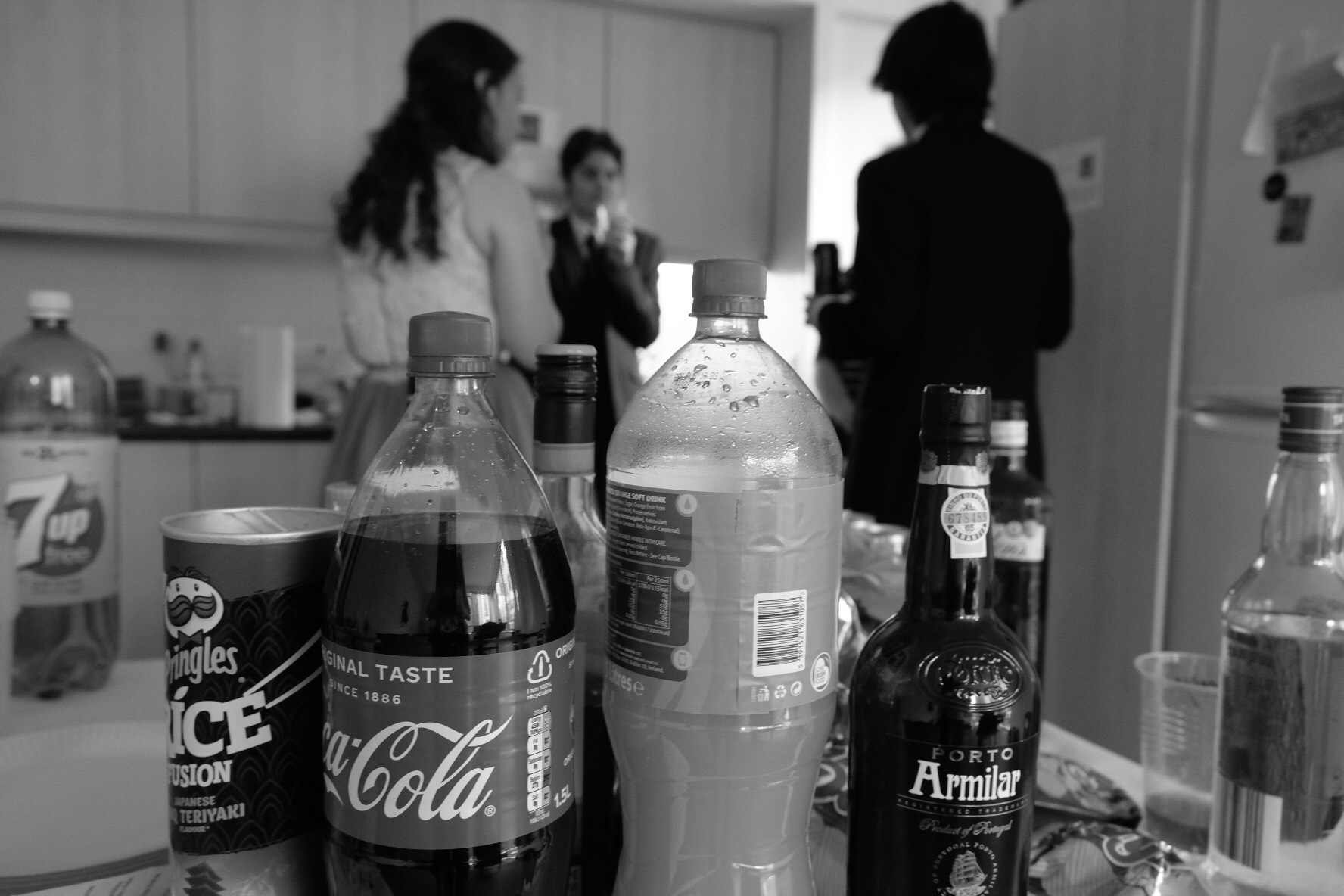It’s the dreaded 4 a.m. feeling – the time of the night when the hangover sets in. All the excitement of the night and your declarations of love to your friends, your partner, the random lad in the smoking area seem cringe-inducing and fake. It is just the drugs talking and you are left feeling detached, scared and exhausted yet unable to sleep. The music that’s no longer playing pulses in your ringing ears. You are dragged back down to earth. You’ve work tomorrow. Essay deadlines. Responsibilities. Your head throbs, your nose is in bits, your mouth is like sandpaper. The drink is burning a hole in your stomach and your jaw is still clenched even though the love buzz is gone. You’ll never feel happiness again. You crawl into bed still wired, slipping in and out of fever dreams. The room is spinning. You said this weekend would be different. You are the worst person on the planet and can’t stop sweating. It’s like somebody broke in and stole every part of yourself that you like.
You’re sure that you will recover tomorrow with plenty of water and coffee, recalling last night’s antics with your friends who crashed on the floor. Not a bother. But then that 4 a.m. feeling begins to stretch to Monday morning, and eventually that 4 a.m. feeling is just how you feel all of the time. Completely disillusioned and empty, like a ghost or a sketch of a person on lined paper. And eventually, any quantity of alcohol or intoxicants makes you feel worse. You can’t do moderation.
“I felt completely panicked that this was how my entire adult life would feel”
I never would have considered myself an addict. I never drank in the morning or before 6 p.m., I never suffered physical withdrawal symptoms, and to the casual observer I didn’t drink more than the average student. But, in reality, every waking hour was just a precursor to getting as inebriated as possible because I was desperately unhappy. Worst of all, I felt completely panicked that this was how my entire adult life would feel. I needed to find something more important than my desire to run away from myself.
It’s common knowledge that depression leaves you disinterested in your hobbies. It slowly robs you of all the things that makes you you. I had convinced myself that a few nights on the drink wouldn’t hurt, but then I was sitting in a doctor’s office listing my symptoms, feeling like I was somebody else and hearing the words “major depressive disorder” echoed back to me. Depression is more than just feeling sad. There’s the insomnia, weight loss and fatigue. But more significantly, the illness completely erodes any sense of self. I felt like I was sleepwalking through life like an actor with no lines, shoved onstage. Worst of all, I felt that I would never not feel this way.
I am by no means a teetotaller, but in conjunction with antidepressants and other lifestyle changes, a brief period of sobriety helped me to rediscover the things that had initially given my life meaning: writing, politics, art and community. Sobriety not only taught me what it felt like to wake up on a Sunday morning without feeling nauseous, but that I can actually face up to social anxiety without a pint in my hand. It taught me how to connect with my friends without alcohol, and to regain a certain mastery over my emotions, which had begun to fluctuate worryingly between misery and mania.
Taking antidepressants helped to lift me from that 4 a.m. feeling, although I acknowledge that medication is not a one-size-fits-all cure for mental health issues. When my medication started working I wasn’t completely cured, but I had the energy, for the first time in a very long time, to do the things that had previously given me a sense of purpose. Instead of the disillusionment and isolation that hung over me for so long, I rejoined places and activities where I felt community, collectivity and solidarity. I am not a doctor and I can’t claim that there is a panacea for mental illness, but it is clear that community and sociability were a major factor in my recuperation.
“If we are talking about the mental health crisis, we need to talk about skyrocketing rents, precarious work, austerity, sexism, racism and homophobia”
There’s a tendency today to view mental illness as a highly individualised misfortune; it’s a personal failure, or a lack of serotonin. The solutions provided are often equally as individualised. If you are overstressed at work, it isn’t your precarious hours that leave you unable to have a social life, or your poverty wages that leave you worrying you’ll be evicted. You are just anxious because you don’t practice mindfulness or yoga! While lifestyle choices have a massive impact on mental health that shouldn’t be ignored, if we are talking about the mental health crisis, we need to talk about skyrocketing rents, precarious work, austerity, sexism, racism and homophobia.
The dark cloud, the heavy rock you drag around, the glass sheet between you and the rest of the world might be there and may plague some of us for most of our adult lives to some degree. While we can’t eradicate our unhappiness overnight, recognising that our sickness is the product of a very sick society is the first step towards building a better world. This seems abstract and grandiose when I struggle to get out of bed in the morning, but the little things have helped me too. While you can’t run from your depression, or drink it away, you can take small steps that keep the 4 a.m. feeling out of your day-to-day life.






